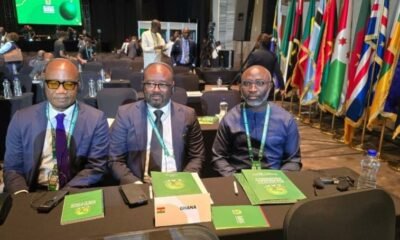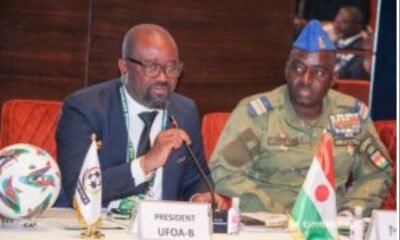Profile
Combing streets, ghettos for emotionally traumatised boys …the story of the ‘Woman King’ and Boy Child Supportive Care Foundation
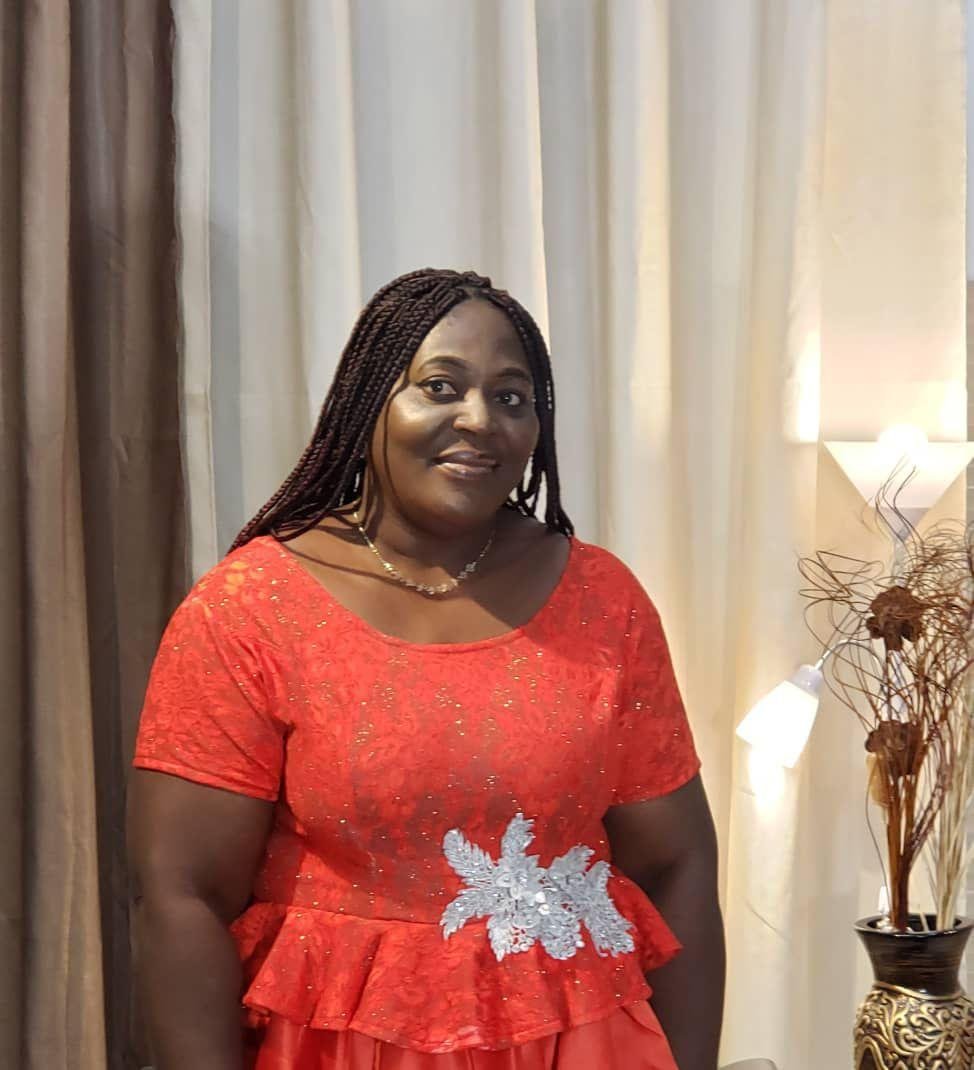
In a society where conversations about the safety and wellbeing of people have always tilted to the side of women and the girl child, one often wonder who cares about the state of the young boys at the same age as the girls.
Boys have been usually considered emotionally and physically stronger vessels, able to go through tough and difficult challenges without the support often enjoyed by girls who go through less or similar trials.
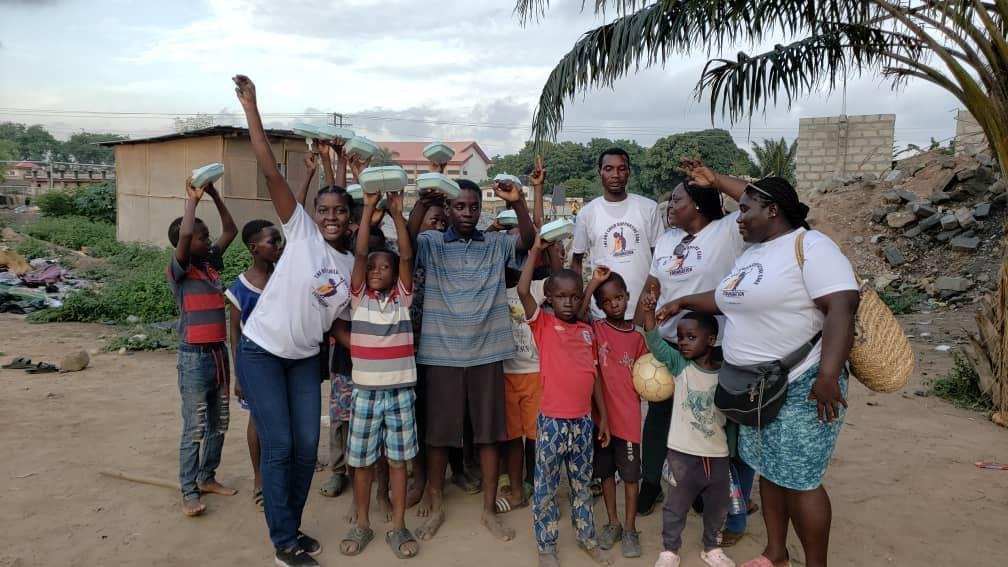
Some of these boys have grown up knowing of a popular Ghanaian parlance ‘barima nsu’, which is literally translated to ‘men don’t cry.’
So, sometimes people don’t realise that behind this show of strength and swagger, lies a soft, emotionally traumatised boy that fears losing his masculinity by bringing out the other part of him.
This was what led to the establishment of the Boy Child Supportive Care Foundation, a little over a year ago, to provide that comforting shoulder for boys to share their concerns.

Even that thought to care for boys came from a woman, Edna Korama Yamoah, popularly known as ‘Woman King’ who stands for the plight of boys and men.
The story behind the Boy Child Supportive Care Foundation is quite fascinating, especially when both boys and men have failed to realise and accept their predicament.
But for the Woman King, boys and men must not see themselves in such struggles as a normal thing.
“You see, boys have been neglected for a long time. We always hear about the girl child. Everything in this society is about the girl child. We think the girls are vulnerable, but boys are more vulnerable.
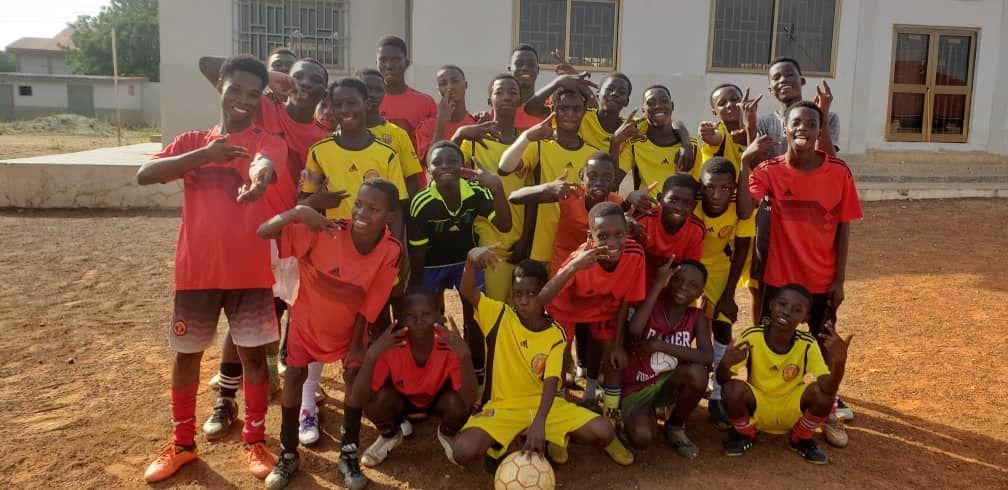
In fact, most boys are more vulnerable than the girls. Boys get so emotional but they hide it because we always know them to be men and not expected to cry,” She explained.
After establishing the foundation, a lot of such boys have been brought together, especially those that are going through emotional problems.
Within this short space of time, the foundation has managed to put about 16 boys in basic school, almost 200 in technical and vocation through scholarship, and has over 150 engaged in sports activities, specifically football and basketball.
Without support from organisations, the foundation has struggled to send these boys to Senior High School (SHS) due to financial challenges, although the SHS is free but without some needed logistics.

According to the Woman King, the work of the foundation requires occasional visits to schools where they talk about issues on mental health and wellbeing.
“We also do charity works. We also do feeding on the streets and ghettos.
“The foundation currently don’t have a hub to house them. That is even not a major concern now since most of them have places to sleep. It’s just that they are poor. They don’t have what to eat, they don’t have what to wear.”
“They are not necessarily street children. These are boys with their families aged between 10-21 years. They are with the families but we see clearly they are going wayward.
“So, we help them with counselling. We do one-on-one counselling. We do interactive counselling. We do that a lot in secondary schools, especially in five schools.
The foundation’s operations are not always smooth as expected because of their backgrounds.
“They are from poor homes. Some are very stubborn as well, and proud. Sometimes you want to help a boy child and he’s like, I’m comfortable where I am. I want quick money. I want to carry goods to get money.
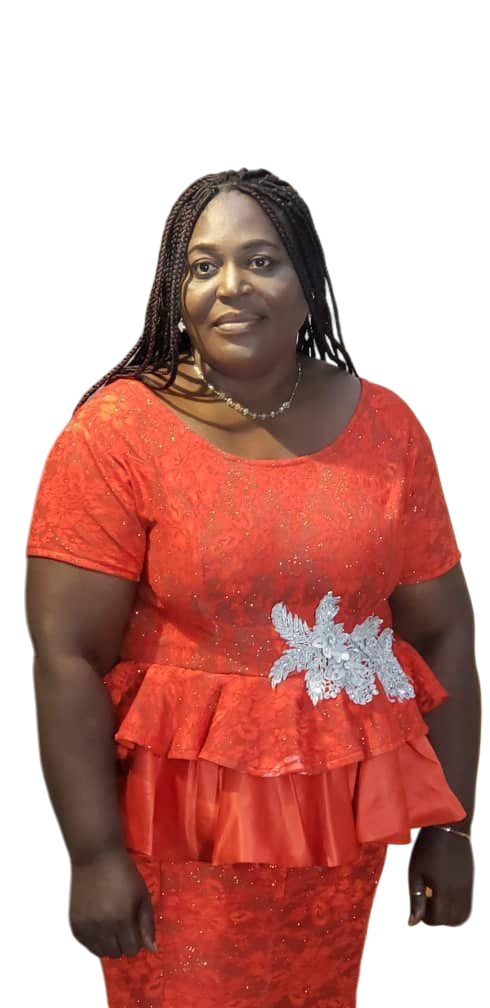
But I have a way of facing them. So, I’m always in kick; every day, I’m in kick. You hardly see me in flashy clothing.
“I go to the gated houses where people cannot go, where the police won’t go. Me, I go there. I go to the ghettos to speak to them.
“I make them feel I’m not against them. Rather, I want to understand them, so they should also understand me.
“Sometimes I cry. Sometimes I just get out of my car and walk along the streets just to look at these boys, how they behave, and their mannerisms,” she narrated.
Woman King has currently written proposals to churches, organisations and philanthropists to find ways to fund these activities that she believes will help a lot of boys realise their dreams.
“I didn’t have any grant. I didn’t even have the idea of writing to do this because we were not even a year old. So we contacted a few people and they started adopting some of the cases.
“So we have people who have adopted the education project. We have only individuals who are taking care of individual boys. They pay their school fees and most of them are in the private schools. Because they want the boys to be in the private schools.
“But after a year, we are collaborating with this big school with the Ghana Atomic Energy Commission.
We are also endorsed by the Ministry of Arts and Culture. We have the endorsement because there is this upcoming project; Arts and Craft. We wanted to do it in the secondary schools, but we realised that Ghana Education Service may delay us,” she stated.
At the sports level, the foundation requires training and remuneration for their coaches in charge of their 14, 16 and 18 football teams.
Woman King is a mother of two girls and believes it is for a purpose that she did not give birth to a boy because her passion has led her to take care of so many of them.
“I feel so good and proud when I see something good coming from my boys. When I see them so happy, it makes me so happy, it makes me feel I am on top of the world.
“I feel good that I have made an impact in somebody’s life, because I see progress. All these boys are transformed.
“And at the end of the day, they all come saying thank you. So it makes me very proud and emotional.”
Womans King’s next agenda is to have a “Books and Stationary Support Festival coming up in the first week of January when schools reopen. We are doing this because I went to some schools, about two or three schools in some villages and the teachers appealed to me to bring them books.”
In this regard, the foundation is calling for support to support these needy school children.
It is the belief of Woman King that the foundation would one day gain international recognition for the good works it is rendering to society.
By Cecelia Yada Lagba
Profile
Patriotism, sacrifice and service — the veterans’ perspective
For men and women with battlefield experience, patriotism, sacrifice, and service are not just abstract ideas, they are lived experiences deep-rooted in hardship and sustained endurance in the line of duty.
Such lifelong duty goes beyond the uniform to include the values of duty, honour, and commitment, long after active military service.
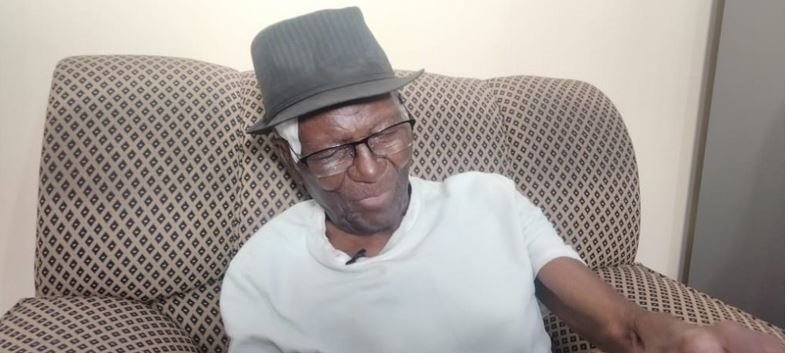
Such has been the life of Ex Lance-Corporal Wisdom Edmund Kudowor, a 97-year-old World War Two (WWII) Veteran, who volunteered for recruitment in 1943 at the age of 15.
He was to be trained and enrolled as a soldier and tradesman for the Artisan Work Company of the then Gold Coast Regiment.
Though looking frail currently after a few days of head surgery, the ex-serviceman’s ability to recall his past experiences was exceptional.
Ex-Lance-Cpl Kudowor lived in an era that saw many young Africans recruited and conscripted to fight for their colonial masters in a war that ravaged half of Europe and claimed almost 85 million lives.
In a brief yet straight to the point interaction with the Ghana News Agency, he expressed no regret in volunteering, despite the imminent danger and harrowing stories about WWII back then.
More surprising was his nonchalant attitude towards the fact that he was not put on pension immediately after service. He expressed no bitterness nor pain.
He returned to the Gold Coast in 1946 after four years of service without any benefits, not until two years ago when he began receiving an annually paid British grant, which was recently increased to 1,350 pounds sterling.
Though the grant did not match the sacrifice, “it is still better than nothing,” he said. Despite his past experiences, the old veterans’ patriotism, sacrifice and service did not wane after his return in 1946, at age 18, to the then Gold Coast.

He gained scholarship to further his education (both home and abroad) and with the knowledge acquired, he served his country for almost half a century, first as a pupil teacher, and rising to become the Headmaster of the Kpando Technical Institute. He headed other educational institutions and retired as a civil servant.
The veteran was not happy about the decline in patriotism and sacrifice, especially among young people in contemporary Ghana.
Listening attentively due to a hearing challenge, the frail-looking veteran pointed to the attitude of the current generation, most of whom were unwilling to go the extra mile to support their country.
He expressed worry over their focus on immediate gains and monetary rewards for little services rendered.
His observation was corroborated by Captain Ben Edmund Duah (Rtd), a veteran, who began his service with the Field Engineer Regiment soon after being commissioned at age 24 as a young officer in the early 1970s.
The retired Army Captain, who once served with the Delta Company of the Five Battalion of Infantry (5BN) among other positions, said: “Patriotism is non-existent in today’s Ghana, unlike our time when we took pride in openly exercising these values.” He, however, did not entirely blame the youth for not exhibiting such traits.
Capt. Duah (Rtd) attributed the seeming non-patriotism by the youth to the struggles they see the veterans go through just to survive, after sacrificing for humanity.
The needs and concerns of patriots and forerunners, particularly veterans in Ghana, were largely unmet, compared to other countries, he said.
“The veterans brought honour to our colonial masters and by extension to Ghana. They were not given what they were promised. Right now, the British Government gives them some support and that is what sustains a lot of them.” Captain Ben Duah stressed the urgency for the country to pay more attention to the concerns and needs of veterans.
“We should see them as people who voluntarily decided to sacrifice their lives for us. If anybody does this for you, you should be fair enough to look at his interest…these are people who have devoted their lives to save us, therefore we should be nice to them in the form of caring for them,” he noted.
When asked for their opinion on many of the youth trying to seek greener pastures abroad due to their lack of confidence in the economy, Capt Duah and L/Cpl Kudowor both agreed that Ghana was still worth sacrificing for, despite the challenges.
Captain Duah, who served during an era awash with military coups d’etats, urged Ghanaians to respect, recognise and be willing to support veterans because government could not shoulder the responsibility alone.
“Citizens should realise that these are people who, some time ago, in their youthful years, sacrificed their precious lives to save others…We expect that as veterans, people will respect and admire them for their values and bravery,” he said.
“I will advise the youth to utilise existing opportunities as a means to serve Ghana. Service to the country, I believe, should be the youths’ primary goal”, Ex L/Cpl Kudowor said.
The two justified the continuous celebration of Veterans Day on the 28 of February as a step in the right direction.
This serves as a platform for the youth to learn about the three values of patriotism, service and sacrifice, the history behind the celebration and the need to respect veterans.
On February 28, 1948, Veterans of World War II, who had fought with the Gold Coast Regiment of the Royal West African Frontier Force, organised a peaceful demonstration, marching to the Christainborg Castle at Osu in Accra, the capital of the Gold Coast, to hand a petition to the colonial governor, demanding their end of war benefits, which they had been promised.
Before reaching the castle, the veterans were ordered to disperse by the colonial police chief. When they refused, he opened fire on them, instantly killing three of the ex-servicemen – Sergeant Adjetey, Corporal Attipoe, and Private Odartey Lamptey.
The 28 February Crossroads Shooting is commemorated every year to honour the veterans for their sacrifice to the country.
—GNA
Profile
Prisca Abah: Ghana’s modelling powerhouse

Ghanaian model, philanthropist and advocate, Prisca Abah, who is known for her contributions to the fashion industry, is strutting her stuff on higher levels.
She was recently selected as one of the models for the Big8 Girls Project, an initiative by Clinton Samuel to celebrate influential African models.
The project consisted of three episodes: the Bio Shoot which highlighted Abah’s professionalism through a corporate-themed photoshoot; Afrodeity which focused on showcasing her confidence and artistry, celebrating the African divine feminine and royalty which presented Abah as a symbol of African cultural pride, embodying strength and elegance.

The Big8 concept, produced by Clinton Samuel, intentionally highlights and celebrates the strongest and most influential models on the African continent, congratulating their steadfastness and contributions to the African fashion industry, even as they grind and win in other aspects of life.
The Big8 sets hierarchy and high standards in the African fashion and modelling industry, crowning eight of them with the ‘Top Model’ status as the leading female models in Ghana at the moment.
“Working with these fiery women will surely ignite more creative minds and stir the pot of positive competition,” said Clinton.
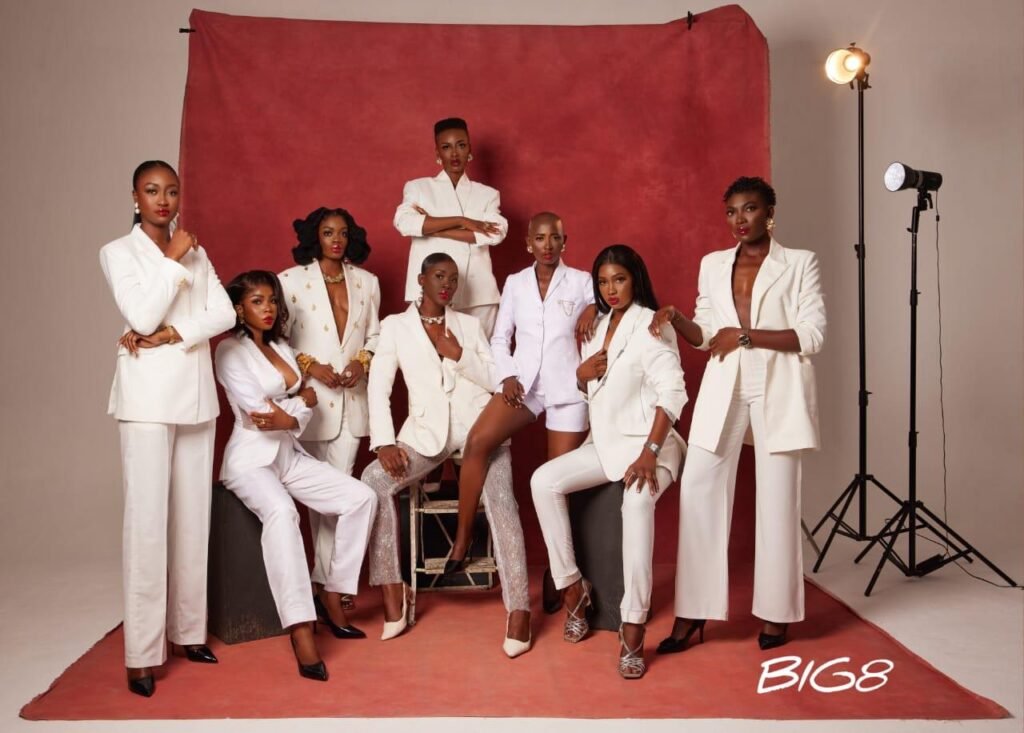
Abah’s early life and career
Prisca Abah began her modelling career in 2013, achieving her first notable milestone in 2014 with an editorial shoot for 5-Star International Modelling Agency. In 2015, she made her runway debut at the Ghana Fashion Awards.
From 2016 to 2018, Abah participated in major African fashion events such as Glitz Africa Fashion Week, Mercedes-Benz Fashion Week in Johannesburg, and Rhythms on the Runway.
During this period, she received accolades, including the “Best Female Model of the Year” and spoke as a UN Ambassador for Sustainable Development Goal 12 at the Sustainable Rice Platform Conference.
International recognition and pageantry
In 2022, Abah expanded her reach by entering the pageantry world. She placed as the first runner- up at the Beauty of Africa International Pageant and represented Ghana at the Miss Globe World Finals, where she earned the title of Miss Globe Africa 2022.

Philanthropy
Abah founded the Palins Foundation, a non-profit organisation, aimed at empowering women and youth through initiatives in education, skills training, and personal development.
Awards and collaborations
In 2023, Abah received the Best Model of the Year award at the Time Ghana Arts and Entertainment Awards. She has collaborated with leading designers such as Charlotte Prive and Ejiro Amos Tafiri, further solidifying her influence in African fashion.
Legacy
Prisca Abah is recognised not only for her contributions to the fashion industry but also for her philanthropic efforts. Her journey serves as an inspiration to young Africans, encouraging them to pursue their dreams while giving back to society.
By Edem Mensah Tsortorme


